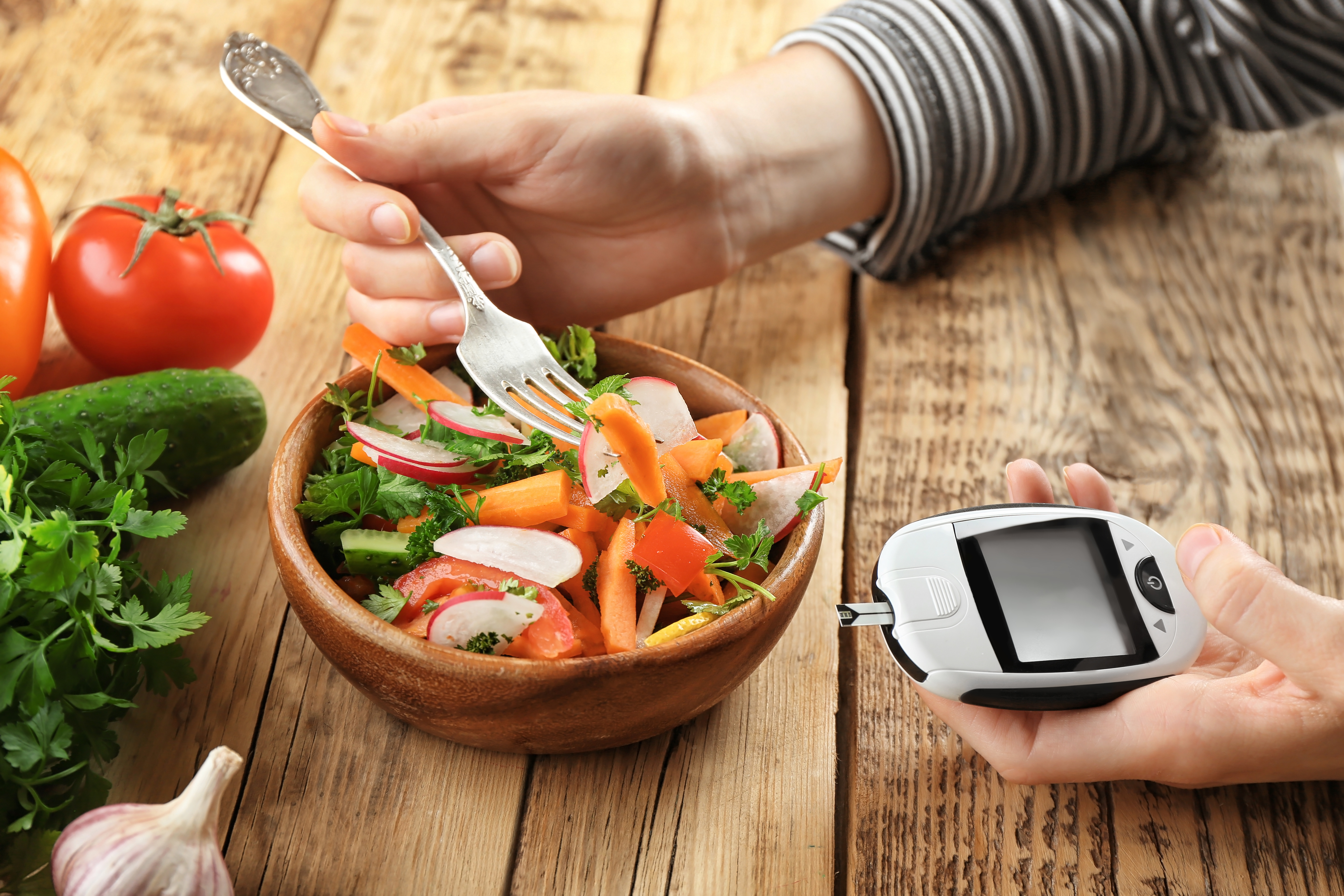
The link between type two diabetes and obesity is undeniable. According to Cathy Nonas, a Registered Dietitian and spokesperson for the American Dietetic Association, type two diabetes can often be completely controlled through a doctor-supervised loss of as little as five percent of a person’s weight.
The more you lose, the greater the benefits, but it does not take enormous change to improve your health. Many people who bring down their weight by five to 10 percent are able to kick both insulin replacement and their diabetes meds to the curb – for good. Here are some simple ways to lose weight when you are diabetic.
1. Start small.
Small improvements affect big change in body chemistry. Gradually improve your diet through healthy swaps and replacements. Reduce or eliminate convenience foods. The single biggest change you can make for the sake of your health is to increase your consumption of foods with one ingredient. These are whole foods. Whole grains, colorful vegetables and moderate amounts of fresh fruits. Start by replacing your favorite white bread with a tasty whole grain version. Do the same for pastas and rice. Try having a single serving of fruit for dessert instead of something loaded with processed sugars. Shop for organic, grass-fed meats when possible, and avoid processed fare like hot dogs or saline-injected flash frozen meats.
2. Learn about portion control.
Understanding how much you are eating can make a big difference in the choices you make. For instance, a serving of fruit is not necessarily a whole fruit. Or, in the case of apricots or grapes, a serving may be several fruits. As a general rule of thumb, a serving of fruit equals about 1/2 a cup. A serving of meat is 3 ounces, or the size of a deck of playing cards. Most green vegetables can be eaten in unlimited quantities, as long as they are not prepared with excess sauces, cheeses or butter or other fats. Starchy vegetables should be limited. These include potatoes, carrots, peas and legumes. Starchy vegetables cause spikes in blood sugar as they are digested.
3. Keep a food journal or log.
Writing down everything you eat has been shown to not only greatly increase weight loss, but also to improve long term success in keeping the weight off. By writing it down, you may be surprised at just how much you do eat, and it becomes easier to make cutbacks throughout your day. Take it a step further by using an on line tool such as Fit Day, My Fitness Pal or The Daily Plate. These types of sites allow you to record your food and provide calorie and macro-nutrient counts, including carbohydrate and sugar grams, to help you understand what you are eating and how it affects your body chemistry.
4. Increase your exercise.
By increasing your daily activity, you encourage the growth and development of muscle mass. Muscle mass burns up glucose and increases insulin sensitivity, according to Registered Dietitian and Exercise Specialist Meg Thompson. Attempting to lose weight without incorporating exercise causes the body to burn muscle tissue along with fat, which is detrimental to your long-term health. You will see major benefits from just 30 minutes a day of light activity like walking. Kick it up a notch and add in dancing or swimming. Sit in a chair and curl and press cans of vegetables. Increase your flexibility by spending a few minutes every day stretching. Start small, and choose fun activities that keep you coming back for more.
5. Get help.
Joining a group like Weight Watchers can be a great motivator and hold you accountable for your new lifestyle. Not only does such a group educate you about your weight and the food you eat, it gives you dietary guidelines in an easily digested format. It also provides you with like minds, people who are on the same path with a similar destination who can offer support and friendship through the rough times ahead.
6. Enroll in a diet meal delivery program, such as Nutrisystem.
These programs tailor your meals to your needs and deliver them right to your door. This is a great option for busy individuals, or those who are house-bound. They guarantee weight-loss, as long as you follow the program and resist outside indulgences. They have the downside of being costly, but can be a valuable weapon in your weight-loss arsenal.
7. Gather support.
Having supportive friends and family around you who are sensitive to your situation and can hold you accountable for your choices is extremely helpful. A weight-loss buddy, whether or not they suffer from diabetes, can help drag you out of bed for that early morning walk, or help you plan meal-oriented get-togethers that focus on healthy food. It is also helpful to have someone you can cheer on in their weight-loss efforts.
8. Follow up regularly with your healthcare provider.
Take advantage of any wellness program offered by you insurance or your job. Some employers offers a reduction in your medical insurance premiums, give bonuses or affiliated with programs that will give a discount for participating.
